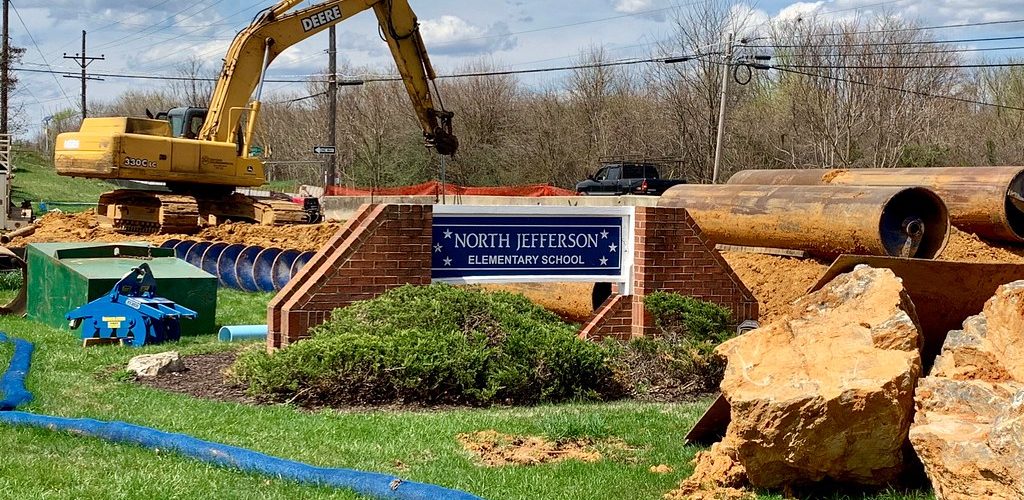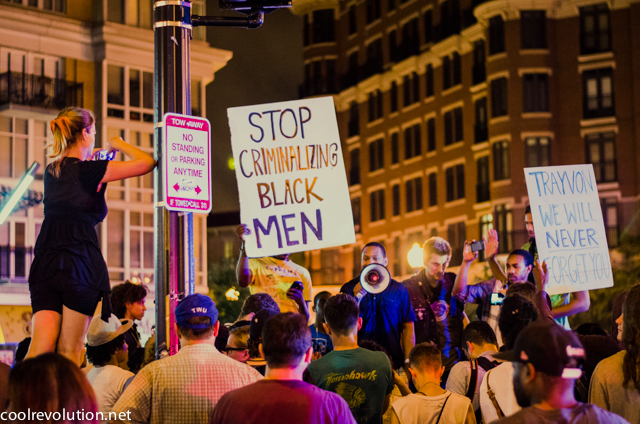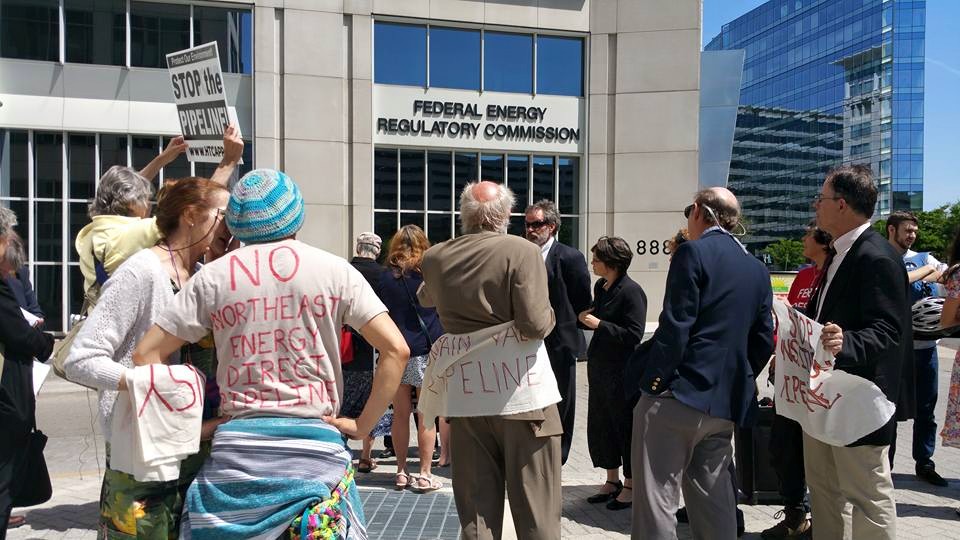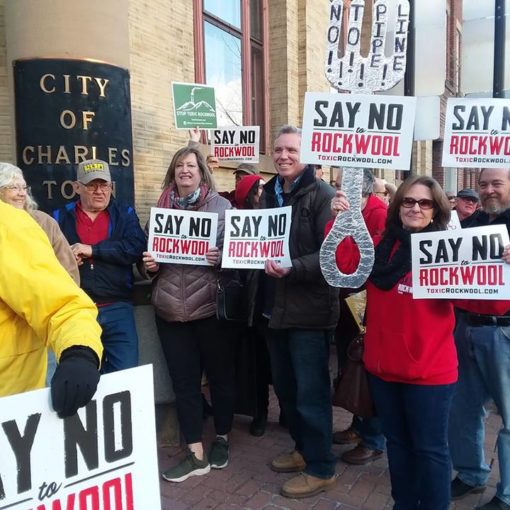Update, May 1, 2019:
A federal court judge granted Rockwool’s motion for a preliminary injunction, halting the Jefferson County Board of Education’s efforts to obtain the Rockwool site by eminent domain. The judge’s order means that the BOE may not pursue condemnation of the property in state court. The injunction will be in effect while proceedings continue in U.S. District Court.
Judge Gina Groh found that Rockwool was likely to succeed on the merits of its case, and furthermore, that evidence indicates that a jury would likely find in its favor.
“The question for me is whether the taking is so arbitrary as to violate due process,” Judge Groh said.
Judge Groh was persuaded by evidence that the BOE entered voluntarily into an agreement with Rockwool (the payment-in-lieu-taxes), and stood by and watched Rockwool construction without ever indicating that the property would be targeted for condemnation. The BOE didn’t budget for the Regional Student Support Center, held no public meetings on it, and condemnation was not on meeting agendas.
Previous land purchases had been well-researched and planned for a long time, she said, citing news articles provided by the plaintiff.
There were some parts of BOE testimony which “defy logic,” she said, and a “reasonable jury would conclude that the BOE was motivated by bad faith.”
“The taking violates due process,” she concluded.
Rockwool will suffer irreparable harm, she determined, because it needs to open facility in 2020 as planned in time to meet customer demand. Otherwise, it would be “crippled” in ability to meet demand for several years.
The BOE, on the other hand, will suffer no real hardship if condemnation is delayed, she said. It would prevent decommissioning, but the Board should have been aware of improvements to the land before seeking condemnation.
Judge Groh’s ruling favored limiting the state’s power of eminent domain and protecting property rights.
“Private property rights should be protected from bad faith and arbitrary government action,” she said. “What if it was a mosque, a methadone clinic or an abortion clinic?” she asked rhetorically. The state could use eminent domain to condemn these properties “under veil of public purpose” if any of them were “found undesirable by the community,” she said.
Neither the judge nor the plaintiff–who made arguments that the power of eminent domain could be abused to curtail religious beliefs or persecute political views–provided examples of cases in which a state entity had committed such abuses.
Rockwool is required to put up $3.5 million as security in the event that the BOE ultimately prevails in the case and needs to be compensated. Judge Groh said that the amount could be adjusted later if the BOE presents further evidence of need.
The preliminary injunction is subject to appeal, according to Anthony Majestro, attorney for the BOE. “The BOE is disappointed in the judge’s ruling and doesn’t believe it did anything wrong in condemning Rockwool’s property,” he said. It is currently evaluating options for how to proceed.
April 30, 2019:
Martinsburg, W.Va.–Pretrial motions were heard in U.S. District Court on April 30 in a civil lawsuit against a school board in West Virginia brought by the Danish company Rockwool, which is building a polluting factory across the street from one of the county schools. Judge Gina Groh allowed the case to move forward, denying the Jefferson County Board of Education’s motion to dismiss or abstain.
In April, the BOE made an offer to buy Rockwool’s property, where it is building a mineral wool manufacturing facility, for $1.36 million. It plans to build a Regional Student Support Center there to provide services for students with neurodivergence, physical and intellectual disabilities and behavioral issues, among others. Rockwool is building the factory across the street from North Jefferson Elementary school and within two miles of three other County schools.
Rockwool asked the court to prevent condemnation proceedings initiated by the BOE from going any further. Three witnesses were called to provide testimony: Superintendent Bondy Shay Gibson, Board of Education President Kathy Skinner and Rockwool Vice President of U.S. Operations Peter Regenberg.
In a letter, the BOE’s attorney invited Rockwool to begin negotiations, else it would use its power of eminent domain to condemn the property. Rockwool viewed this as a threat, according to attorneys at Tuesday’s hearing, and filed a lawsuit in U.S. District Court.
Within a half hour of Rockwool’s filing, the BOE began the process to condemn Rockwool’s property in state court.
At Tuesday’s hearing, Rockwool attorney Joseph Schaeffer described the government’s power of eminent domain as “terrifying.” Government can use the power to take private property “for whatever purpose it wants if it is willing to pay for it,” he said.
He speculated that the state could even use eminent domain to persecute those with certain religious or political beliefs. (Eminent domain is usually conferred by the state to private companies to give them the power to condemn property, for example, for easements for pipelines, power lines or roads.) He called the Board’s move a “pretense” to stop Rockwool.
BOE attorney Anthony Majestro contended that the BOE’s use of eminent domain was not “in bad faith,” although the legal standard was ill-defined.
“This is for the purpose of educating students in Jefferson County. We’re not saying that the state can condemn property for any reason, but who decides?”
He argued that a state court was better suited to make such determinations, and Rockwool had not yet exhausted all other avenues of determining the case.. Without the state court hearing Rockwool’s claims first, no land has been taken from Rockwool and therefore it has suffered no harm.
“We haven’t been able to set foot on the property, we haven’t kicked them off. There is no injury,” Majestro said.
Schaeffer argued that federal courts have an obligation to exercise their jurisdiction. Judge Groh agreed and declined to dismiss for lack of jurisdiction or abstain in favor of the state court.
To gain a temporary injunction, Rockwool attorney James C. Walls tried to show that the BOE had animus toward Rockwool and an ulterior motive in moving to purchase, then condemn, its property.
Jefferson County Superintendent of Schools Bondy Shay Gibson testified to the need for a Regional Student Support Center and the planning which had gone into it up to this time. She characterized her role as providing criteria to Board so it can make decisions to best meet student needs. She said she considers data, student enrollment, capacity, needs into the future, surveys of staff, and conversations with civic organizations and partners.
There is a 25% increase in students diagnosed with autism since 2017 and a 300% increase in high needs students, which include those in general population who are affected by addiction and domestic violence, Dr. Gibson said. Many of them have been hospitalized for self-harm. The RSSC would provide social and emotional support .
Walls tried to show that much more due diligence and preparation went into previous purchases of land by the School Board. He also questioned why the Board, he presumed, had not considered those properties for building the Regional Student Support Center.
School Board President Kathy Skinner testified that the Board had in fact considered the 101-acre Shepherdstown property and the 155-acre “Strider property” for the RSSC, but found them to be too small to accommodate both present plans and future additions. They also were designated to accommodate growth in the general student population with new school campuses planned for them.
She said location was the primary consideration in selecting the Rockwool property for the RSSC. They wanted to locate it proximate to the Berkeley County line to make it accessible to the rest of the region and to make it central to other Jefferson County Schools.
The two properties were not for sale at the time the Board was researching land acquisition. Walls took advantage of Skinner’s remark that “everything’s for sale” to ask why the Board had not pursued any other large tract of undeveloped land in the neighborhood of Rockwool’s property. “Why would you seek to condemn when there’s all this other land out there?” he asked.
The Board took into account a World Health Organization guideline that schools should not be located within two miles of an industrial facility, Skinner said, a restriction which ruled out most property along Rt. 9.
Walls produced EPA school siting guidelines that state that all industrial facilities within about half a mile should be identified.
Walls accused the Board of “secretly plotting to take Rockwool’s property” by conducting most of its business in executive session.
“We didn’t secretly do anything,” Skinner said. Property decisions are usually made in executive session, she said. If made public, another party can go in and “scoop it up” or lead to other scenarios leading to a price increase.
The vote to purchase the Rockwool property was held at the April 8 Board meeting. The vote appears to be a violation of the open meetings requirements, since it did not appear on the meeting agenda.
Eminent domain is “not a decision made lightly,” Skinner said, but it became “an urgent matter” in February because the Aurora program serving autistic students is moving to Jefferson County.
Skinner said the Board is holding a vote to “run” a bond in September. The timing would align the bond with the Comprehensive Educational Facilities Plan (CEFP) and when the last bond comes due. It is “much more palatable to keep taxes consistent,” she said, rather than lowering taxes after a bond is paid off, then raising them to the previous level to pay off another.
Walls contended that the Board had failed to practice the same due diligence for the Rockwool property as it had for the Shepherdstown and Strider properties. Geotechnical surveys, land analysis and soil samplings, for example, had not been done.
“We have to wait until there is consensus between parties,” Skinner said. “We’re not yet welcome to do land studies.”
Walls presented to Dr. Gibson what he said was a technical analysis of a property purchased by the BOE recently by the engineering firm Thrasher. He asked whether any such analysis had been done for the Rockwool property. After much discussion, it turned out that Thrasher had provided the analysis unsolicited by the Board and free of charge.
Walls established that Dr. Gibson and the Board had not consulted with the West Virginia School Building Association on the RSSC. Dr. Gibson responded that there is a difference between the regional school and general schools, and SBA requirements apply only to the regional school.
Rockwool Vice President of U.S. Operations Peter Regenberg testified that the company has spent $49 million dollars so far on the Ranson project. It has an additional $78 million in commitments, only a small portion of which might be recouped if the project were stopped, he said.
These amounts might be taken into consideration in calculating fair compensation in condemnation proceedings in state court.
On April 30, Judge Groh will rule on the temporary injunction and set bond in a hearing on May 1.





